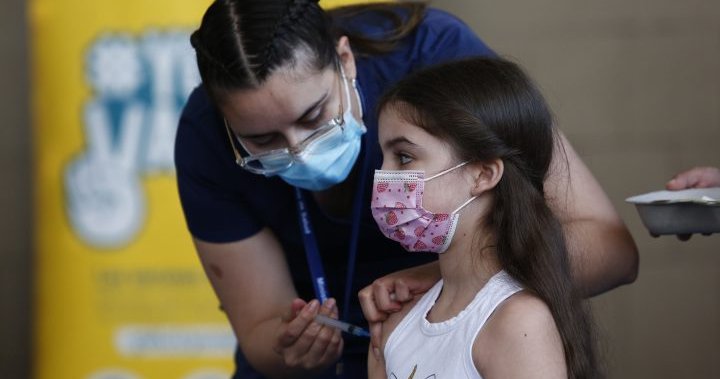
‘No middle ground’: How children’s COVID-19 vaccination is polarizing parents
Global News
Difference in opinions between separated and divorced parents about vaccinating children is rare, but the questioning during COVID-19 has taken on a new level, experts say.
When the COVID-19 vaccines are approved and made available for young kids in Canada, Ontario mom Alyssa Beauchamp will not be rushing to get her five-year-old son jabbed.
The 22-year-old mother of three from Hamilton, Ont., who is fully vaccinated herself, is concerned about how her oldest would react to the vaccine.
“I would prefer to maybe just wait a little bit to see how other kids react before I put it in my son,” she said.
“My kids are fully vaccinated with everything else. They’re up to date on their shots. It’s just this one makes me a little bit nervous,” she told Global News.
Toronto resident Oksana Laurinaviciene, who is a lactation consultant, is in a similar predicament. While her husband is “200 per cent” in favour of getting their two children, aged 9 and 11, vaccinated, Laurinaviciene is worried about any potential side effects.
As part of its trial, Pfizer and BioNTech said data showed that their COVID-19 shot elicited a strong immune response among 2,268 children aged five to 11 that matched what was previously observed in those aged 16 to 25.
The kids’ dosage has also been proven to be safe, with similar or fewer temporary side effects — such as sore arms, fever or achiness — that teens experience, Dr. Bill Gruber, a Pfizer senior vice-president, told The Associated Press.
Despite her concerns, Laurinaviciene she says she will most likely go ahead with her kids’ vaccinations so they can stay in school and take part in extra-curricular activities.












